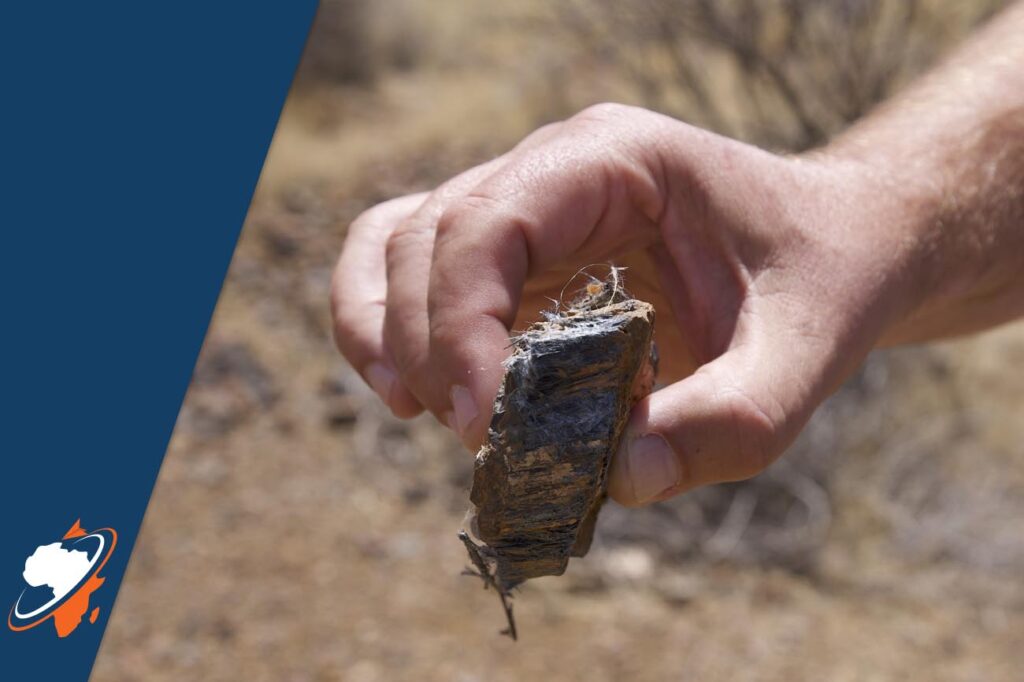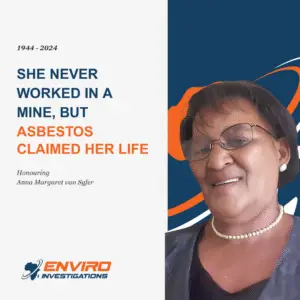The Hidden Danger: Asbestos in the Northern Cape, South Africa
The Northern Cape of South Africa, renowned for its vast landscapes and mineral wealth, carries a legacy that many might not be aware of—a deadly one tied to asbestos. For decades, asbestos mining has been a significant industry in this region, but its environmental and health consequences continue to haunt communities to this day.
The Asbestos Legacy
Asbestos is a naturally occurring silicate mineral known for its heat resistance and durability. It was widely used in construction, insulation, and various industrial applications. During the 20th century, the Northern Cape was a hub for asbestos mining, particularly in areas like Kuruman, Prieska, and Koegas. While the mining industry brought economic opportunities, it also left behind a trail of contamination.
The mining and processing of asbestos release microscopic fibres into the air, soil, and water. When inhaled or ingested, these fibres can lodge in the lungs and other tissues, leading to severe health conditions. Despite the global decline in asbestos use, the residual effects remain a critical issue in the Northern Cape.
Health Risks Associated with Asbestos Exposure
Asbestos exposure can lead to several life-threatening diseases, including:
- Asbestosis: A chronic lung disease caused by the scarring of lung tissue due to inhaled asbestos fibres. This condition leads to severe breathing difficulties and decreased lung function.
- Mesothelioma: A rare and aggressive cancer that affects the lining of the lungs, abdomen, or heart. It is almost exclusively linked to asbestos exposure.
- Lung Cancer: Prolonged exposure to asbestos increases the risk of developing lung cancer, particularly among smokers.
- Other Cancers: Studies suggest links between asbestos exposure and cancers of the stomach, throat, and colon.
These diseases often have long latency periods, meaning symptoms may not appear until decades after exposure.
Environmental Impact
The Northern Cape has extensive environmental contamination. Discarded asbestos tailings—the byproducts of mining—still litter the landscape, particularly in abandoned mining towns. Wind and water erosion carry asbestos fibres into homes and farmlands, perpetuating exposure. In some communities, asbestos-containing materials were used to construct houses and schools, compounding the risk.
Social and Economic Consequences
The health impacts of asbestos have devastating consequences for families in the Northern Cape. Breadwinners suffering from asbestos-related diseases are often unable to work, plunging households into poverty. The cost of medical care for these conditions is exorbitant, and access to specialized healthcare is limited in rural areas.
Furthermore, the stigma surrounding asbestos-related illnesses can lead to social isolation. Many affected individuals feel neglected by industries and governments that profited from asbestos while failing to address its aftermath.
Steps Towards Remediation and Awareness
Efforts to mitigate the asbestos crisis in the Northern Cape have been slow but are gaining traction. Key initiatives include:
- Asbestos Removal Projects: Programs to safely remove and dispose of asbestos-contaminated materials are underway, though progress is uneven due to funding and logistical challenges.
- Awareness Campaigns: Educating communities about the dangers of asbestos and how to minimize exposure is crucial.
- Health Support Services: Improved healthcare infrastructure and access to specialists for diagnosing and treating asbestos-related conditions are essential.
- Legislative Action: To hold industries accountable, laws banning asbestos use and addressing legacy contamination must be strictly enforced.
How You Can Help
While the asbestos crisis may feel distant, it affects real people with real stories. Here are ways you can make a difference:
- Spread Awareness: Share information about asbestos dangers and the plight of affected communities.
- Support Advocacy Groups: Organizations fighting for asbestos remediation and victim support need funding and volunteers.
- Demand Accountability: Urge policymakers and corporations to prioritize asbestos cleanup and victim compensation.
Conclusion
The Northern Cape’s asbestos legacy reminds us of how industrial progress can come at an immense human and environmental cost. Addressing the dangers of asbestos must remain a priority as we strive for a healthier and more sustainable future. Together, we can honour the memories of those who have suffered and ensure that future generations inherit a safer world.
If you or a family member has been affected by an asbestos-related illness, call Enviro Investigations in Kimberley at 053-285-0671 today.




